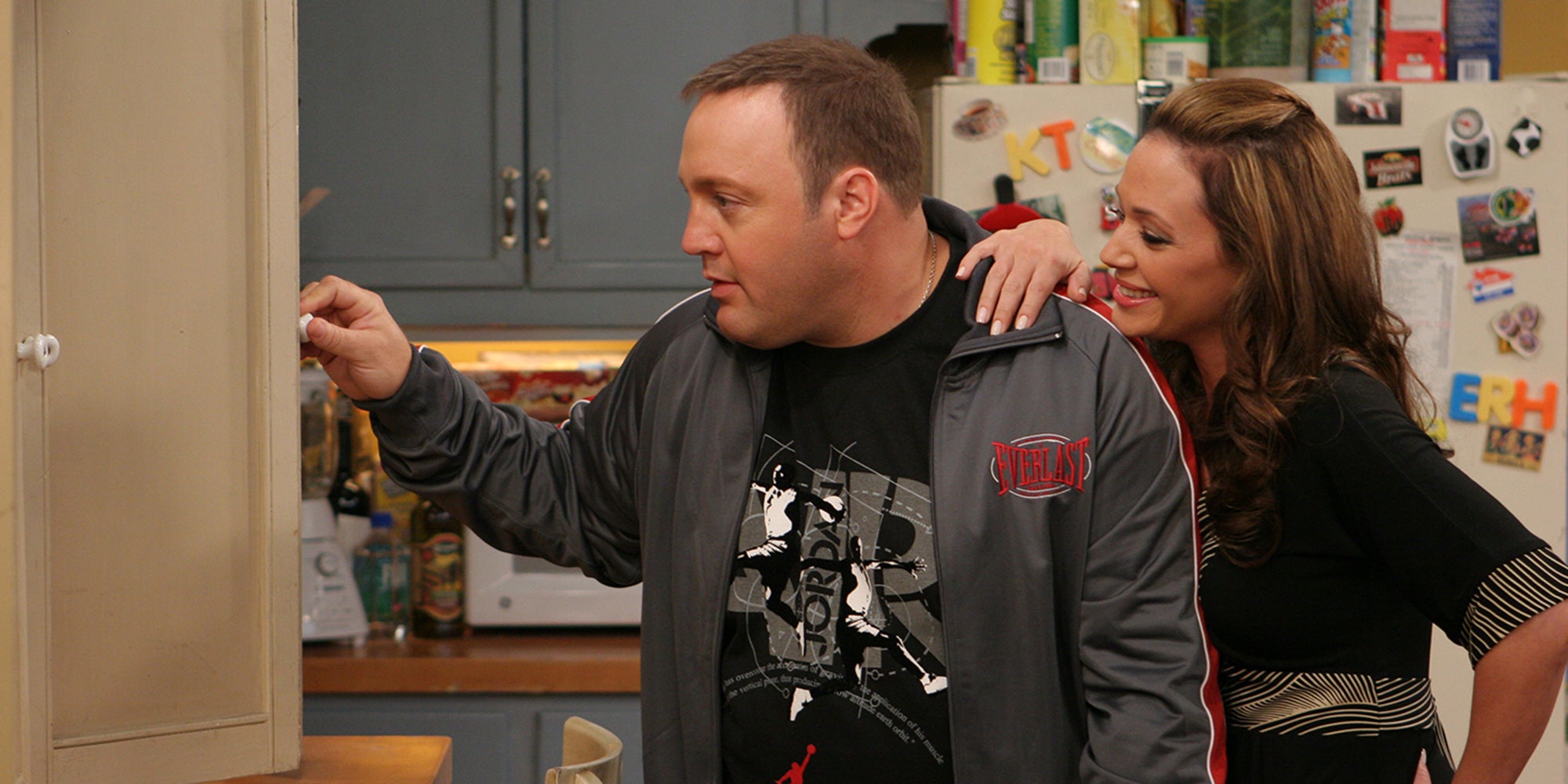
Memes are the lifeblood of the internet. These video snippets, images, gifs, sayings, or emotes convey the huge rainbow spectrum of emotion and information, allowing those online to show they are in the loop on the latest goings on. But as is the case with most media these days, memes go out of date about as quickly as they arrive. They’ve become condensed supernovas burning super bright before exploding in of themselves and becoming duller than ash (or used by brand accounts).
And no meme has ever shined as bright and burned out so quickly as this random picture of Kevin James. Over the past week, several pictures of the star of Paul Blart Mall Cop have started to circulate on X, most prominently, a 1998 photo of the actor smirking on the set of King of Queens. Complete with a Getty watermark the image conveys a sense of embarrassment, smugness, and confusion, all in a quirky flannel package. It’s impossible to figure out when the first use of the image was, but according to KnowYourMeme, @ChampagneAnyone on X is responsible for its most recent alchemy.
From there, the image spread like wildfire, becoming the face of drunken officer encounters, uncomfortable sexual encounters, and boredom of the Kevin James meme. It started to evolve and mutate with parodies and renditions of other memes, creating a sort of meme-ception. James himself even jumped in on the trend, posting the image to promote an imaginary tour.
Though some seemed incredibly happy to live in a new James-inspired meme utopia, calling it the best “meme arc of 2023,” others were ready to see it go. Now we just have to wait and see if it will end up like all of the other forgotten memes of the 21st century.
Memes themselves tend to have fairly short half-lives, burning out of the topical radiation that keeps them glowing and vibrant. In 2013 we had the Norwegian comedy song “What Does the Fox Say” which confused the public with it’s chirping and non-sensical lyrics that it became a viral smash hit, pulling in over 1.1 billion views. Just two years later we all wanted to know if the dress was gold or blue, with commenters angrily vetoing their side of the Buzzfeed article creating debate. Neither of these incredibly popular topics of the time has had any lasting impact, outside of elder millennials asking, “Hey remember that thing?”
Because the internet moves so fast and conversations are constantly starting, a meme needs to be instantly classic in order for it to survive past its initial outbreak. Still, images that convey massive emotions like a small child smirking in front of a burning building or the many depraved actions of Wojak have lasted the test of time because of their universal appeal. Regardless of age, gender, or internet usage, you know exactly what they mean just by staring at them. James’ facial contortions are nice, but they’re unlikely to shake the world in the same way.
It’s the same thing that happens with most internet memes, gone as quickly as they arrived, only fondly remembered in brief fleeting moments of nostalgia. Memes are encapsulated in their viral moment, unaffected by future controversies or problems. I cringe when I think of myself saying “I’m Pickle Rick” (especially in the wake of Rick and Morty creator Justin Roiland being accused of sexual assault). But I have to remind myself that like a shooting star, the fleeting nature of a meme is part of the appeal.




